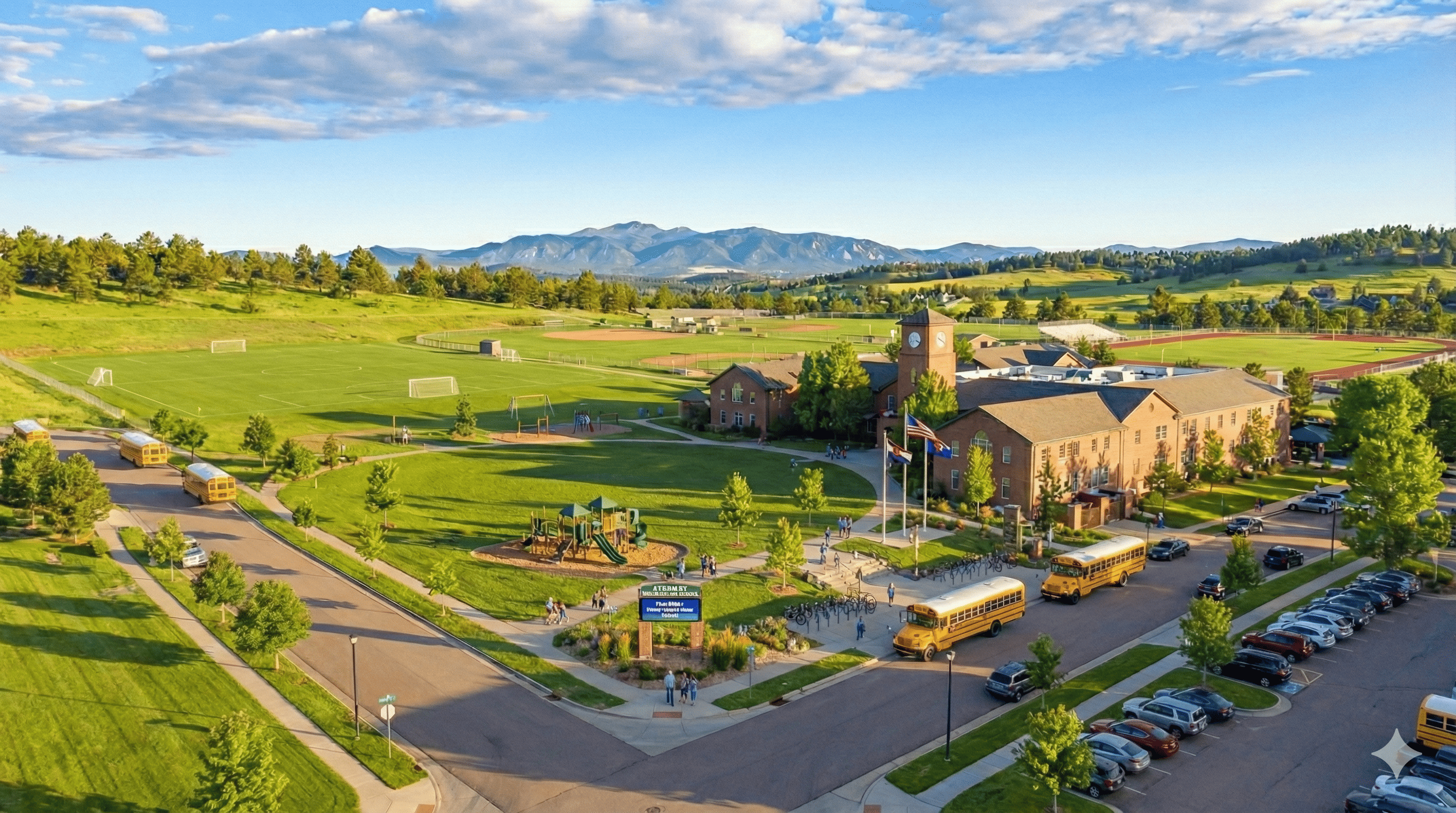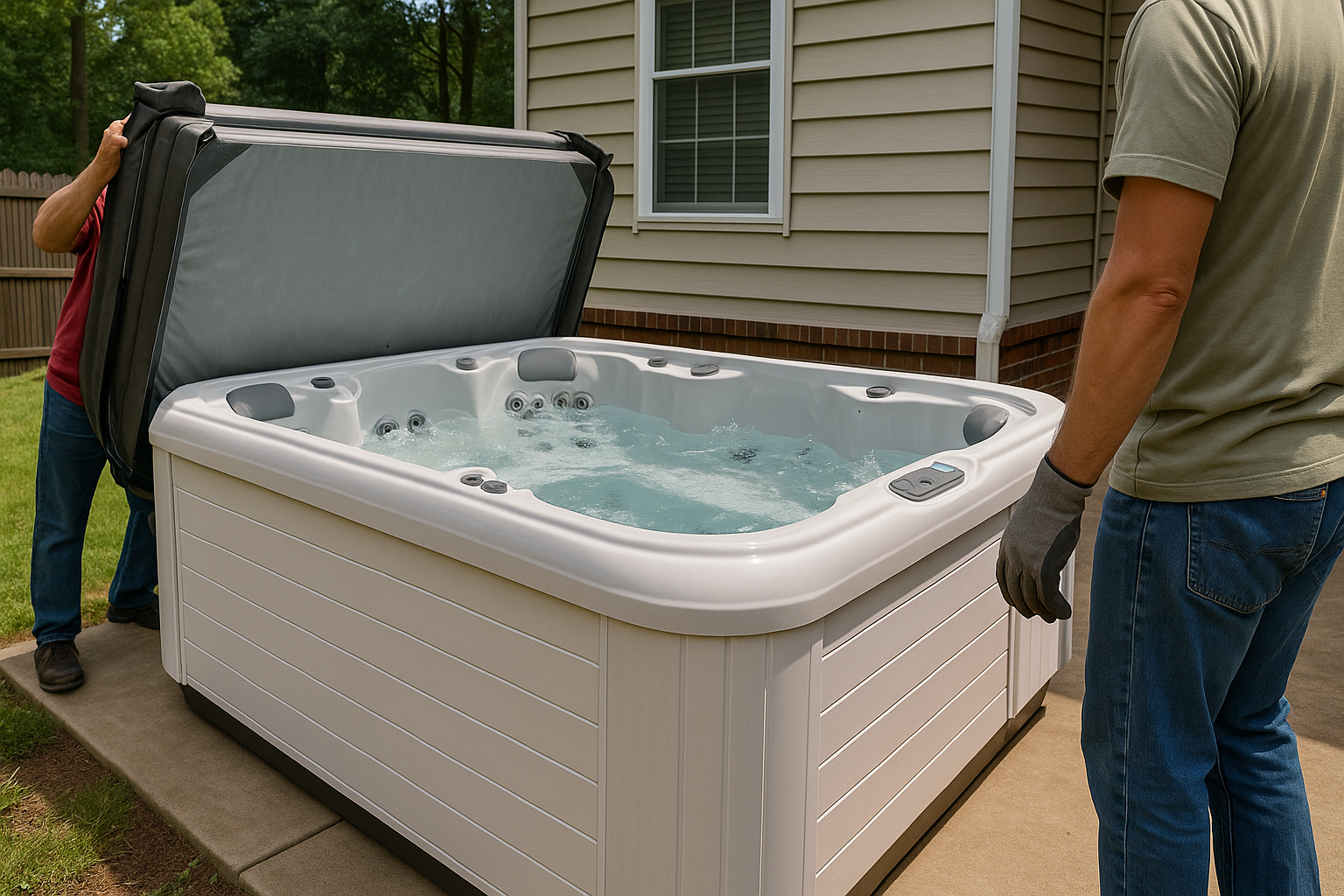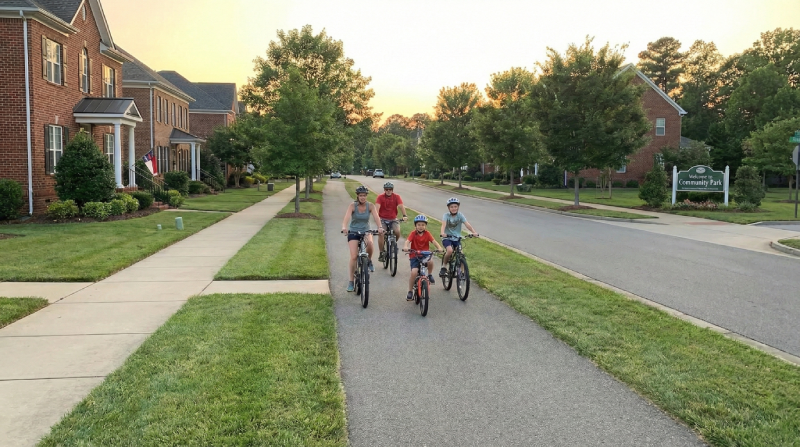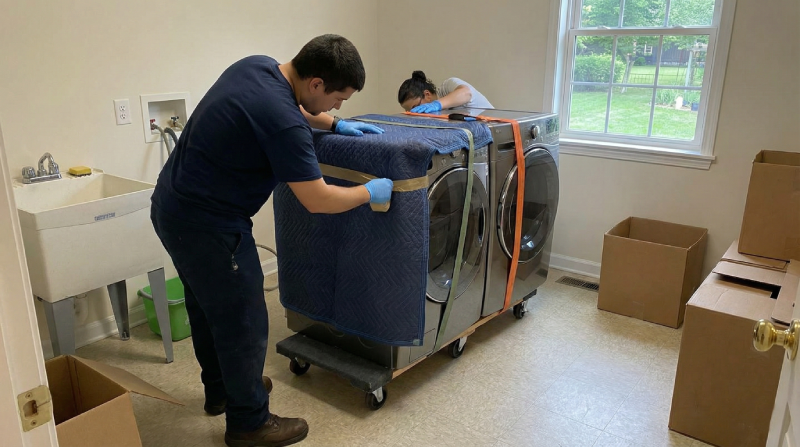Living in Asheville, NC, means enjoying mountain views, outdoor adventures, and a creative community, but also dealing with high housing costs and lower wages. This guide covers what you need to know before moving to Asheville, including: realistic income requirements, neighborhood comparisons, job market realities, and practical moving tips. You'll get honest insights to help you decide if this location fits your lifestyle and budget in 2026.
Quick Facts About Asheville, North Carolina
Asheville's location, climate, and culture make it one of the most popular places to live in Western North Carolina. Here's what defines daily life in this mountain city:
Location and Geography
- Elevation and setting: Asheville sits at 2,100 feet in the Blue Ridge Mountains, where the French Broad and Swannanoa Rivers meet
- Population: The city has 95,000 residents, while the greater metro area includes 470,000 people across Buncombe County
- Access to nature: Urban amenities and wilderness areas sit within minutes of downtown, with hiking trails starting within 10 minutes and the Blue Ridge Parkway nearby
Climate
- Summer temperatures: Highs average in the mid-80s, cooler than lower-elevation cities in the Southeast.
- Winter conditions: Highs reach the upper 40s with 10-15 inches of annual snowfall, creating scenic views without major disruptions.
- Rainfall: About 40 inches spread evenly throughout the year.
- Year-round activities: Four distinct seasons with mild weather allow outdoor adventures most days throughout the year.
Culture and Community
- Cultural fusion: Appalachian traditions merge with progressive values, celebrating both bluegrass music and modern art galleries
- Downtown character: Locally-owned businesses fill historic architecture, from vintage shops to specialty coffee roasters
- Resident demographics: The community attracts creative professionals, outdoor enthusiasts, and seniors considering north carolina as a good place to retire.
- Strong community connections: Neighbors know each other, local businesses support one another, and newcomers fit in easily.
Cost of Living in Asheville, NC
Housing costs in Asheville are significantly higher than the national average, with median home prices around $462,000 and one-bedroom apartments renting for $1,200 monthly, making housing the largest expense for most residents.
Housing Costs
- Typical home value: $462,000 as of late 2025.
- Median sale price: $492,500, showing intense competition among buyers.
- One-bedroom apartment rent: Averages $1,200 monthly.
- Two-bedroom apartment rent: $1,600 to $2,000, depending on location.
Other Living Expenses
- Grocery costs: About 2% above the U.S. average.
- Utilities: $135-155 monthly for electricity; $35-50 for water and sewer (mild mountain temperatures reduce heating and cooling costs),
- State income tax: Our complete guide to living in North Carolina details the 4.25% rate, which stays relatively low.
- Sales tax: Buncombe County's combined 7% rate.
- Property tax: $0.5466 per $100 of assessed value (about $2,500 yearly for a $460,000 home).
- Transportation: Limited public transit means most residents need a personal vehicle.
Income Requirements
- Single person: $50,000 to $60,000 annually covers rent and basic expenses with occasional dining out and modest savings. Shared housing can reduce this to $40,000-45,000 per person.
- Families: $90,000 to $110,000 combined income needed for comfortable living with children, accounting for larger housing ($1,800-2,200 monthly), childcare ($800-1,200 per child monthly), and increased household expenses. Dual-income families manage best, as splitting the financial burden makes housing costs more sustainable while maintaining quality of life.
- Remote workers and retirees: Typically need $60,000-$80,000 annually for comfortable living, benefiting from lower housing costs compared to major metros while maintaining similar incomes. Many earn salaries that reflect Charlotte or Raleigh costs of living while enjoying Asheville's more affordable mountain lifestyle. While others rely on pensions ($30,000-$50,000) combined with investment income and Medicare coverage.
Housing and Neighborhoods in Asheville, NC
Asheville's neighborhoods each offer different character and lifestyle options, from walkable urban areas to family-friendly suburbs.
Downtown and Montford: Urban Living
Downtown and Montford offer walkable urban lifestyles with restaurants, breweries, and cultural venues at your doorstep. Housing includes converted lofts and restored Victorian homes, attracting young professionals and empty nesters. Downtown condos start at $400,000, while Montford homes exceed $700,000.
West Asheville: Creative Hub
West Asheville is the city's artistic center, featuring vintage bungalows from the 1920s-1940s. Haywood Road hosts record stores, craft cocktail bars, vegan restaurants, and artist studios. Smaller bungalows start around $350,000, with renovated homes reaching $600,000. The neighborhood appeals to artists, young families, and those seeking authentic local culture.
North Asheville: Family-Friendly
North Asheville offers mid-century ranches and new construction with larger yards, located near UNC Asheville and Beaver Lake, just 10 minutes from downtown. The area features highly-rated schools, parks, and quieter streets. Older ranches start at $325,000, while updated homes with mountain views reach $550,000.
How to Find Housing In Asheville
Start your housing search at least three months before moving, as competition is intense, many homes receive multiple offers within days, and quality apartments rent before hitting public listings. Work with local real estate agents, get pre-approved for financing, contact property management companies directly, and join local Facebook housing groups. Consider temporary housing or nearby communities like Candler, Leicester, and Swannanoa (15-20 minutes from downtown) for more affordable options with larger properties.
Job Market and Economy
Asheville's job market is centered on three main sectors: healthcare, education, and tourism/hospitality. Each offers different opportunities and challenges for prospective residents seeking employment.
Healthcare
Mission Health (now HCA Healthcare) and the VA Medical Center employ over 14,000 people, making healthcare the most stable sector with competitive wages, though recent ownership changes have created uncertainty.
Education
Buncombe County Schools, Asheville City Schools, and UNC Asheville provide stable employment with good benefits, though teachers start around $42,000 annually, below state averages.
Tourism and Hospitality
Restaurants, breweries, hotels, and attractions like the Biltmore Estate create thousands of seasonal jobs with lower wages, often requiring workers to maintain multiple income sources to afford local housing costs.
Remote Work
Location-independent professionals earn higher wages from national employers while enjoying Asheville's lifestyle, making remote work one of the most realistic paths to financial stability here.
The Benefits of Living in Asheville, NC
Asheville offers unmatched outdoor recreation, with hiking trails just minutes from downtown and the Blue Ridge Parkway nearby, allowing for year-round adventures in mountain biking, rock climbing, kayaking, and fishing. The city's world-class food and beverage scene features dozens of breweries and farm-to-table restaurants that rival much larger cities, with vegan, vegetarian, and gluten-free options widely available.
Beyond recreation and dining, Asheville's welcoming creative atmosphere celebrates individuality and accepts people from all backgrounds, fostering strong community connections where neighbors know each other and newcomers (especially those involved in arts, music, or progressive causes) integrate easily.
The Challenges of Living in Asheville, NC
Prospective residents should understand the real challenges that come with mountain living. Housing affordability remains the most pressing issue, with prices climbing faster than wages, and many residents, often working multiple jobs or living with roommates, continue into their 30s and 40s to afford basic housing.
Tourism creates seasonal congestion that overwhelms infrastructure, with downtown areas packed during October's leaf season and summer weekends, causing traffic backups on narrow mountain roads and long waits at restaurants, while locals often avoid their own city. Additionally, the region struggles with infrastructure gaps, including overcrowded schools, strained city services, water system problems that have made national news, and limited air travel options from the small airport that often require drives to Charlotte or Atlanta for affordable flights.
Best Time to Move to Asheville, NC
Timing your move strategically can save money and reduce stress while navigating Asheville's seasonal tourism patterns. Late summer or early fall offers the ideal moving window with mild weather and fewer tourist crowds, while you should avoid October's leaf season and major summer holidays when hotels fill up and moving services become scarce. Spring (March through May) works as an alternative, though unpredictable weather may include late snow or heavy rain, and off-peak moves generally provide better availability and pricing for trucks and professional movers.
Hiring Movers in Asheville: What You Need to Know
Professional moving help requires advance planning in Asheville, especially during peak relocation seasons. The city's unique mountain terrain and older housing stock create challenges that experienced local movers handle more effectively than DIY approaches. Understanding your options helps you balance cost savings with convenience while avoiding common pitfalls.
Book professional movers at least one month ahead for summer moves, when demand peaks alongside tourist season. If you're working with a tight budget, consider a mixed labor moving approach: rent your own truck and hire local moving labor just for the heavy lifting during loading and unloading. This strategy can reduce costs by 30-40% while still protecting your belongings, as these movers are also familiar with the unique challenges of Asheville's older housing stock, including narrow doorways, steep staircases, and tight corners that can be difficult for even experienced DIY movers to navigate.
When considering several moving companies, seek transparent pricing with clear hourly rates and no hidden fees. The decision between moving yourself versus hiring professional movers does impact your budget, but it also affects your stress level, timeline, and the safety of your belongings. Get quotes from multiple providers, read recent reviews, and ask specifically about their experience with Asheville's unique challenges.
Choosing the Right Neighborhood in Asheville Before You Move
Neighborhood selection affects your daily life and long-term satisfaction, making thorough research important before committing to housing:
- Explore beyond downtown: Visit different neighborhoods to understand commute times, local services, and community atmosphere.
- Important location factors: Consider proximity to hiking trails, walkability to restaurants, and school districts even without children.
- Property value considerations: School quality and neighborhood amenities affect resale values regardless of your family situation.
- Multiple visits recommended: Experience neighborhoods at different times of day and days of the week.
- Local insights valuable: Connect with current residents through online forums to get honest perspectives on each area.
Financial Planning for Your Asheville Move
Conservative financial preparation helps newcomers avoid the common mistake of underestimating Asheville's cost of living relative to local wages:
- Budget cushion: Build in extra funds for higher-than-expected housing costs and potential income gaps during job transitions.
- Six-month emergency fund: Having half a year of expenses saved provides security while adjusting to Asheville's economic reality.
- Wage adjustment planning: Newcomers from higher-wage areas often underestimate the income-to-cost ratio challenge.
- Account for all costs: Factor in utilities, transportation, and lifestyle expenses beyond just rent or mortgage payments.
Moving Truck Logistics for Asheville's Mountain Terrain
Knowing what the best straight truck size is for moving and planning for Asheville's unique geography prevents common relocation challenges:
- Major rental providers: Book with U-Haul or Penske for multiple Asheville-area locations and convenient drop-off options.
- Advance reservations: Reserve trucks at least one month ahead for peak season moves to get availability.
- Size considerations: Mountain roads and narrow neighborhood streets challenge larger vehicles (choose carefully).
- One-bedroom sizing: Most one-bedroom apartments fit comfortably in a 15-foot truck
- Two-bedroom requirements: Two-bedroom homes typically need 20-26 foot trucks for adequate space.
- Load security matters: Winding mountain roads require proper load securing to prevent shifting during elevation changes.
Is Asheville Right For You?
Asheville offers stunning natural beauty and vibrant culture, but success requires realistic financial planning and often creative income solutions. Remote workers and dual-income households thrive here, while those on local wages face tougher choices. If mountain living and community matter more than career advancement, Asheville could be your ideal home. Start planning early, visit different seasons, and connect with locals to set realistic expectations. With proper preparation, you can join the thousands who've made this mountain city home.
Frequently Asked Questions
Is Asheville, NC, a good place to live?
Yes, for outdoor enthusiasts and creative professionals who can afford high housing costs. No, for those relying solely on local wages below $30/hour.
What is the cost of living in Asheville, NC?
Asheville costs 8% more than the national average. One-bedroom apartments rent for $1,400-$1,800, and median home prices are around $475,000.
What is the job market like in Asheville, NC?
Visit multiple seasons first, secure housing early due to fierce competition, save 6 months of expenses, and book movers one month ahead for late summer or early fall moves.
The job market focuses on tourism, hospitality, and healthcare, with an average hourly wage of $27.60, well below the national $33 average.
Can you afford to live in Asheville on a local salary?
Yes, but with compromises: roommates, distant neighborhoods, or multiple income sources. Single earners typically spend 40-50% of their income on housing.
How do I move to Asheville, NC?
Visit multiple seasons first, secure housing early, save 6 months of expenses, and book movers one month ahead for late summer or early fall moves.





























.webp)









































